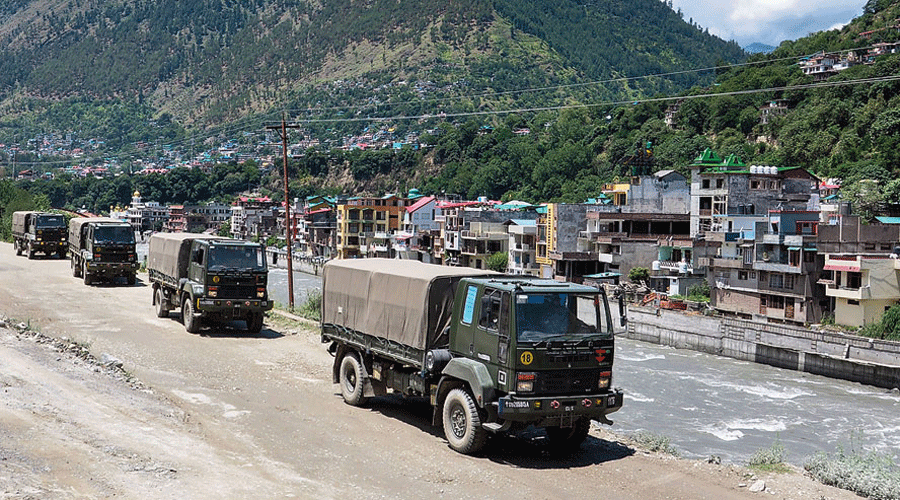China on Friday refused to comment on a possible meeting between Prime Minister Narendra Modi and Chinese President Xi Jinping on the sidelines of the SCO summit in Uzbekistan next week, but said the disengagement troops in the Gogra-Hotsprings area of eastern Ladakh was a "positive development" to improve the strained bilateral ties.
"I have no information to offer at this moment," Chinese Foreign Ministry spokesperson Mao Ning told a briefing here when asked whether India and China are in communication about a possible Modi-Xi meeting on the side-lines of the Shanghai Cooperation Organisation (SCO) summit to be held in Samarkand on September 15 to 16.
China and India are important members of the SCO. Both support Uzbekistan as rotating chair for this year's summit. "We hope for the greater development of the organisation," she said.
Speculation is rife about the meeting between Modi and Xi as India and China on Thursday announced the disengagement of their troops from the Patrolling Point 15 in the Gogra-Hotsprings area of eastern Ladakh in a "coordinated and planned way."
The Beijing-headquartered SCO is an eight-member economic and security bloc consisting of China, Russia, Kazakhstan, Kyrgyzstan, Tajikistan, Uzbekistan, India and Pakistan.
The Chinese military on Friday confirmed that the troops of China and India have begun the process of disengagement from the Patrolling Point 15 in the Gogra-Hotsprings area of eastern Ladakh in a "coordinated and planned way."
Commenting on the disengagement announcement by both sides Mao said, "this is the outcome of multiple rounds of talks over a period of time between the two sides' diplomatic and military establishments at various levels. It is conducive to peace and tranquility in the border areas."
Asked whether the Thursday's disengagement agreement will result in normalisation of relations she said, "the beginning of disengagement is a positive development. We hope this will help facilitate the sound and steady development of bilateral relations."
India has been consistently maintaining that peace and tranquillity along the Line of Actual Control (LAC) were important for the overall development of bilateral ties.
The eastern Ladakh border standoff erupted on May 5, 2020, following a violent clash in the Pangong lake areas.
PTI











